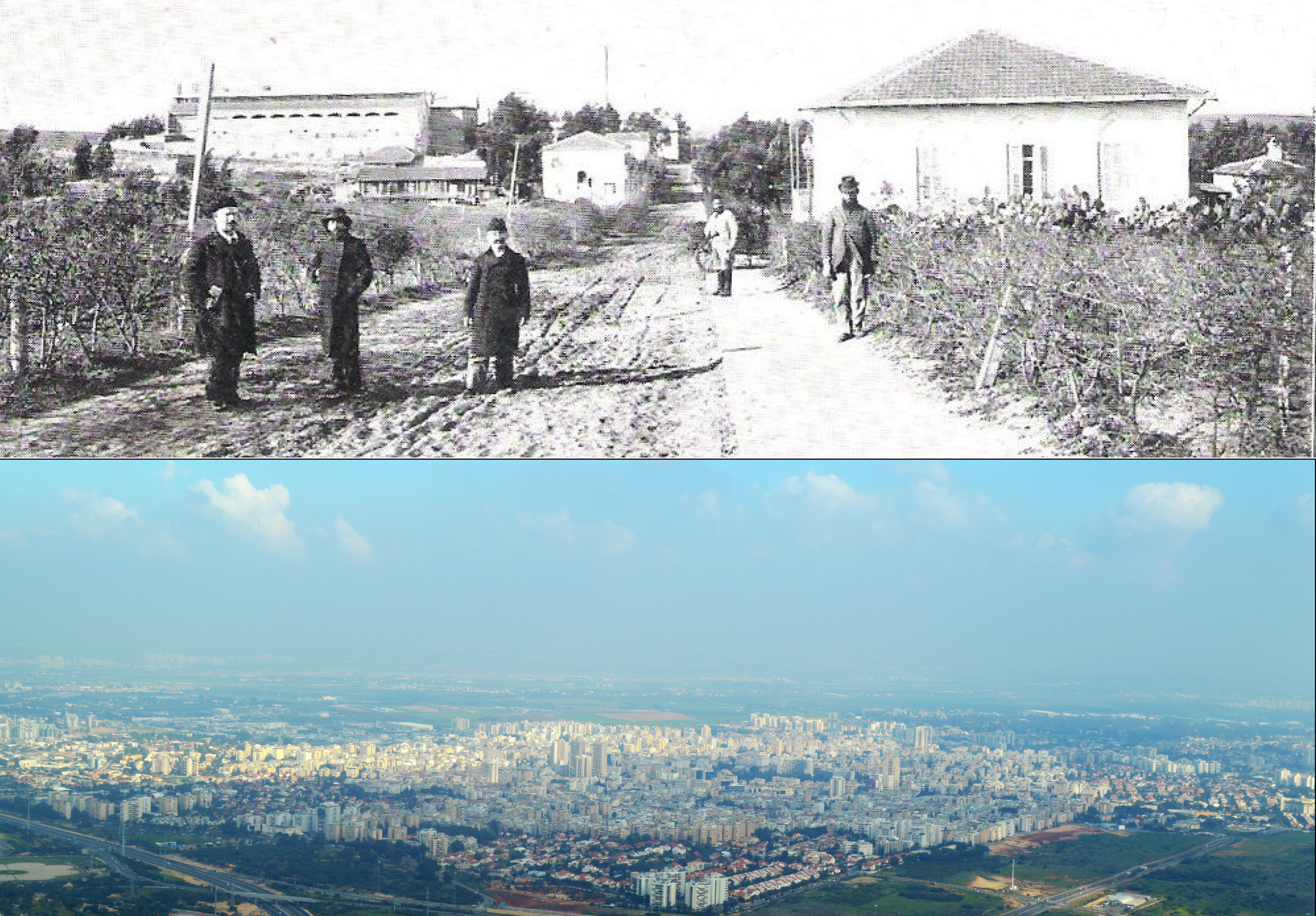Rishon LeZion – Israel’s fourth largest city
In just over 140 years the city of Rishon LeZion south of Tel Aviv has grown from zero to over a quarter of a million inhabitants. The Israeli national anthem was born in Rishon LeZion.

Rishon LeZion as it looks today and how it looked in 1899. Photo: Amos Meron/Commons Wikimedia
Rishon LeZion is Israel’s fourth biggest city and has a population of around 260,000.
Located eight kilometers south of Tel Aviv, after Petah Tikva, it was the second city founded by Jewish immigrants who arrived in the Ottoman Empire in the 1880s. Rishon LeZion was founded in 1882 during the Ottoman period by ten pioneers from Kharkiv, Ukraine. The following year, agriculture was started, along with the cultivation of citrus and grapes. The Great Synagogue was built in the coming years and in 1886 a primary school was founded. The expression ‘Rishon LeZion’ means ‘First to Zion’ and is taken from Isaiah 41:27: “First to Zion are they, and I will give a herald to Jerusalem”.
Rothschild invested there
Baron Edmond James de Rothschild was involved in the development of the city and through his efforts great progress was made in agriculture, citrus orchards and wine farming.
Between 1885 and -89 the Great Synagogue was built in Rishon Le Zion and in 1886 Haviv Elementary School was established there as the first modern school to teach exclusively in Hebrew. Eliezer Ben-Yehuda, the leading figure in the revival of the Hebrew language was a teacher in Rishon LeZion.
Naftali Herz Imber, who later became a famous poet, lived in Rishon LeZion in the late 1880s. His poem ‘Tikvahtenu’ was set to music by Shmuel Cohen, a young resident of Rishon LeZion, and soon it became the unofficial Zionist national anthem.
Israeli national anthem
In 1933, at the 18th Zionist Congress in Prague, the Imber/Cohen Zionist National Anthem was formally adopted and renamed Hatikvah (Hope).
In November 2004, the State of Israel formally adopted a shortened, modified version of the poetic song as the national anthem of modern Israel, the Hatikvah.
A 1922 census conducted by the British Mandate listed Rishon LeZion as having a population of 1,396 inhabitants, consisting of 1,373 Jews and 23 Muslims. Rishon LeZion was declared a city in 1950, with a population of about 18,000 at the time and by 1983, it had grown to 103,000 which had more than doubled again by 2006.



